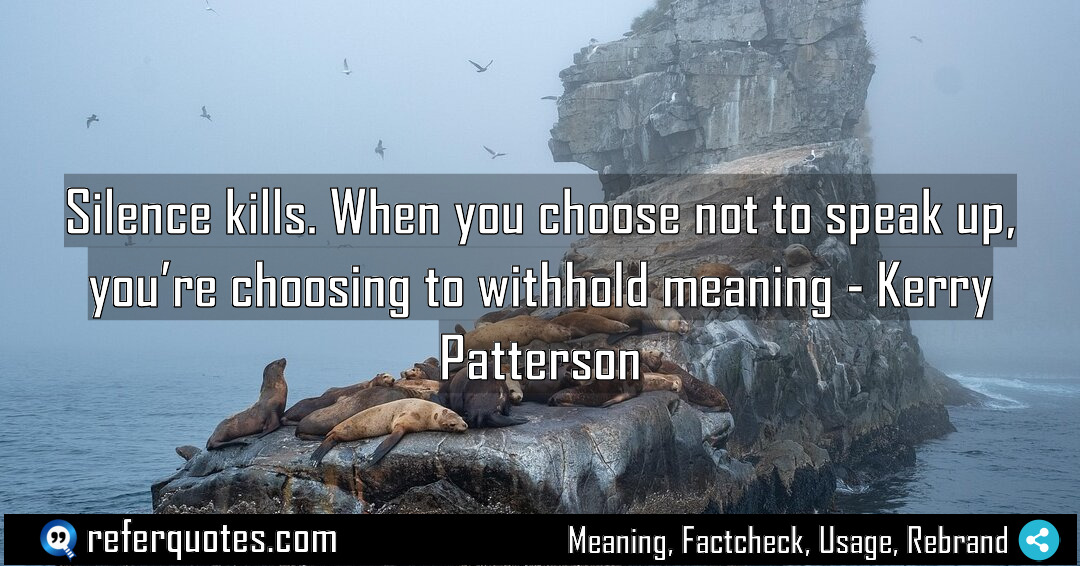Silence kills. When you choose not to speak up… it’s a gut punch of a line, right? It reframes silence not as politeness, but as a deliberate, and often damaging, choice. Let’s break down why this concept from Crucial Conversations is so powerful.
Share Image Quote:Table of Contents
Meaning
At its core, this quote means that staying silent isn’t neutral. It’s an active decision to withhold your perspective, your data, your truth—and that act of withholding has consequences, often fatal to projects, relationships, and trust.
Explanation
Here’s the thing I’ve seen play out in companies a hundred times. We tell ourselves we’re “keeping the peace” or “not rocking the boat.” But what we’re really doing is making a choice. We’re choosing to let a bad decision slide. We’re choosing to let a misunderstanding fester. We’re choosing to let a team member continue with a flawed approach because we’re afraid of an awkward 5-minute conversation.
And that’s the killer part. It’s not the loud, dramatic arguments that derail most teams. It’s the silent, unspoken gaps in understanding. The meaning that never gets shared. The project that fails because no one voiced that one crucial concern in the third meeting. That’s the “silence” that “kills.”
Quote Summary
| Context | Attributes |
|---|---|
| Original Language | English (3668) |
| Category | Skill (416) |
| Topics | courage (145), honesty (27), silence (11) |
| Literary Style | direct (414), memorable (234) |
| Emotion / Mood | urgent (23) |
| Overall Quote Score | 82 (297) |
Origin & Factcheck
This is straight from the seminal 2002 book, Crucial Conversations: Tools for Talking When Stakes Are High, by the quartet of Patterson, Grenny, McMillan, and Switzler. It’s a cornerstone of their work on communication. You sometimes see the sentiment echoed elsewhere, but this is the definitive source and phrasing.
Attribution Summary
| Context | Attributes |
|---|---|
| Author | Kerry Patterson (35) |
| Source Type | Book (4032) |
| Source/Book Name | Crucial Conversations: Tools for Talking When Stakes Are High (35) |
| Origin Timeperiod | 21st Century (1892) |
| Original Language | English (3668) |
| Authenticity | Verified (4032) |
Author Bio
Kerry Patterson coauthors influential books that help people tackle tough conversations, drive change, and build accountability at work and beyond. He cofounded VitalSmarts (now Crucial Learning) and spent decades developing training that organizations implement globally. He earned a master’s degree from Brigham Young University and completed doctoral work in organizational behavior at Stanford, and he has taught and consulted widely. The Kerry Patterson book list includes Crucial Conversations, Crucial Accountability, Influencer, and Change Anything—bestselling titles that continue to shape modern leadership and communication practices.
| Official Website
Where is this quotation located?
| Quotation | Silence kills. When you choose not to speak up, you’re choosing to withhold meaning |
| Book Details | Publication Year/Date: 2002; ISBN/Unique Identifier: 9780071771320; Last Edition: 3rd Edition (2021); Number of Pages: 272. |
| Where is it? | Chapter: Learn to Look, Approximate page from 2021 edition |
